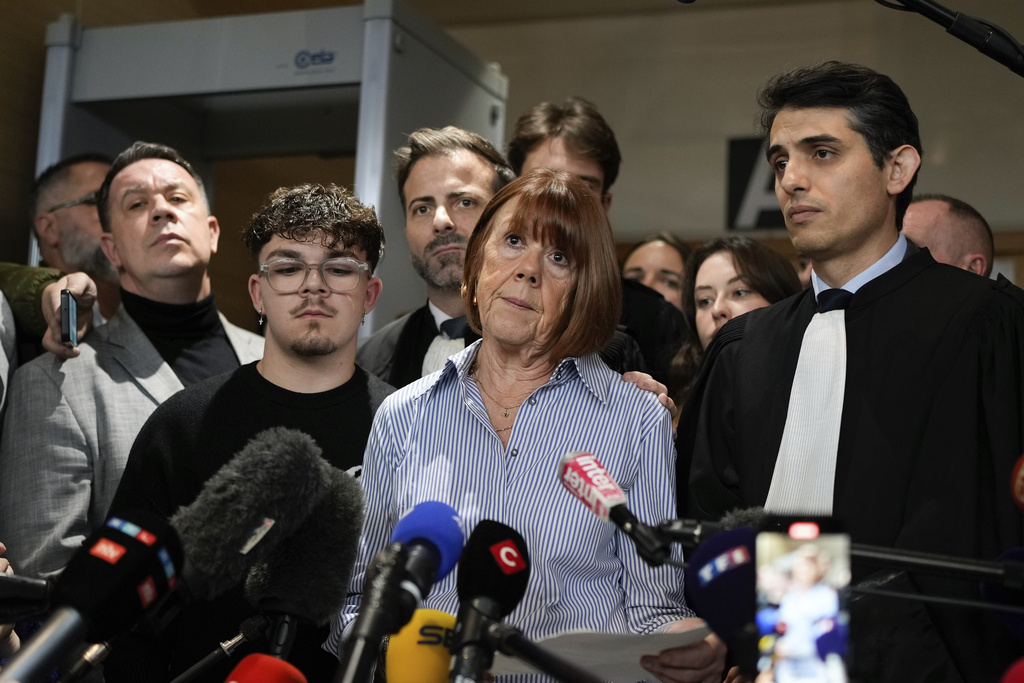Dominique Pelicot, the husband who repeatedly drugged and raped his wife for nearly a decade while also inviting dozens of strangers to rape her unconscious body, has been sentenced to 20 years in prison, concluding the four-month-long landmark criminal case in France.
The Vaucluse Criminal Court handed down sentences ranging from 3 to 20 years in prison to 51 men convicted of sexual assault and rape in the widely followed Mazan rape trial.
The verdict drew sharp criticism from feminist activists and victims’ advocates demonstrating outside the courthouse who argued the punishments were insufficient for the gravity of the crimes.
The case centered around the repeated drugging, sexual assault, and rape of Gisèle Pelicot by her then-husband, Dominique Pelicot, and dozens of men he recruited online over a decade. Dominique Pelicot, 72, received the statutory maximum sentence of 20 years, including a mandatory incarceration term of two-thirds of his sentence. He will also be registered in the national sex offender database.
The other 50 defendants, aged 27 to 74, were found guilty of varying degrees of participation. Most received sentences of less than 10 years, and six were released immediately due to health considerations or suspended sentences. The heaviest sentence among the co-defendants was 15 years for Romain V., who raped the victim on six separate occasions. The lightest was a three-year sentence, two of which were suspended, for a defendant accused of inappropriate touching.
As reported by Le Parisien and AFP, the court’s sentences fell below the prosecution’s recommendations, which called for 10 to 18 years for most of the accused. In total, the prosecution had requested 652 years in prison for the group but received a combined total of 428 years.
Dubbed a “monster” by the defense, Dominique Pelicot admitted to sedating his wife with anxiolytics to facilitate sexual violence, both by himself and others he recruited online. He denied manipulating the co-defendants, but their lawyers argued they were victims of his schemes. The court rejected all 30 acquittal requests, asserting the guilt of every defendant.
Pelicot’s defense lawyer stated that he was “dazed” by the imposed incarceration period and has not yet decided whether to appeal.
Feminist groups and activists protested outside the Avignon court on Thursday following the sentencing hearing. Demonstrators chanted slogans such as “shame on justice” and accused the court of failing women. Activist Valentine from the feminist collective Amazones d’Avignon criticized the sentences as “despising” women, arguing they were a missed opportunity for justice to align with the severity of the crimes.
“Shame has ultimately not changed sides; it is now justice that should be ashamed,” said another protester. Many pointed to the number of sentences under 10 years as evidence of systemic failure to address gender-based and sexual violence adequately.
Gisèle Pelicot’s children shared the view of those protesting, telling the AFP in a statement that they were “disappointed” with the “low” sentences imposed. However, Gisèle, who waived her right to anonymity during the trial, said she “respects the court and the decision” and thanked those who had shown her solidarity during the “very difficult ordeal.”
“At this moment, I think first and foremost of my three children David, Caroline, and Florian. I also think of my grandchildren because they are the future and it is also for them that I led this fight, as well only to my daughters-in-law,” Gisèle Pelicot said as she left the court.
She expressed her desire for the judgment to send hope “to the unrecognized victims whose stories often remain in the shadows.”
The public prosecutor’s office has not ruled out appealing the court’s decisions to seek harsher penalties for the co-defendants.






